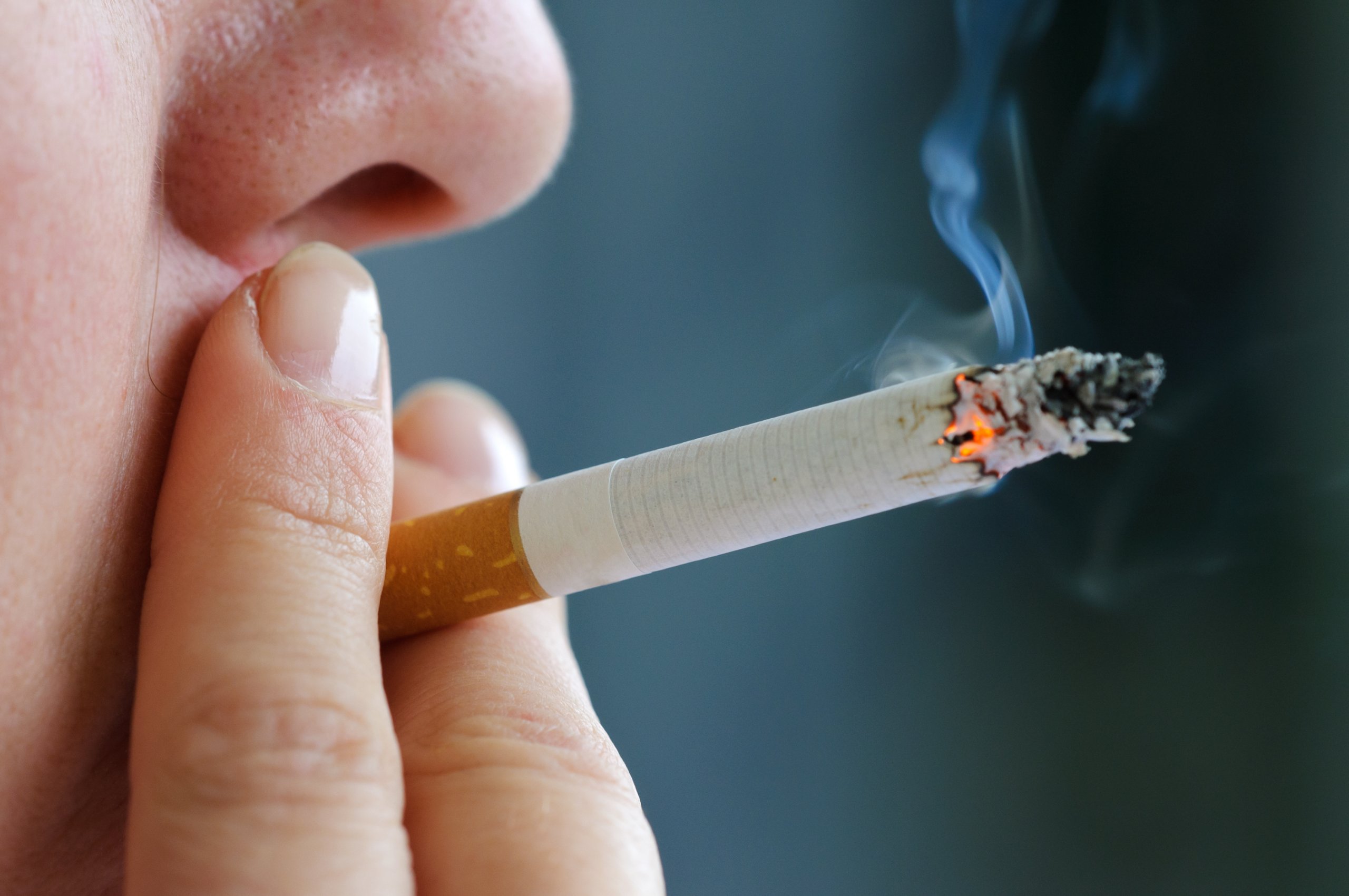How does smoking affect your immune system?

How does smoking affect your immune system?
It’s no secret that smoking spells bad news for your overall health and wellbeing. In fact, according to the NHS, smoking is one of the biggest causes of death in the UK, with around 76,000 people dying as a result of smoking each year[1].
Smoking can significantly increase your chances of developing over 50 serious health conditions, some of which can be fatal, while others can cause irreversible, long-term damage to your wellbeing. Not only can you become seriously ill if you smoke yourself, but you can be affected if you’re around people who smoke too[2]. This is known as passive smoking.
Smoking can damage different parts of your body, including your heart, lungs, blood circulation and it can even reduce the fertility of both men and women[1]. What’s more, smoking can cause a sore throat, fingernail discoloration, poor vision and impact your mood, making you feel irritable and anxious.
Did you know smoking can seriously affect your immune system too? In this article, we take a closer look at the impact this bad habit can have on this all-important defence network.
Can smoking affect your immune system?
In short, yes – smoking can seriously affect your immune system[2]. The truth is, your immune system helps your body defend itself from diseases and infections. It works to protect you from just about everything, from the common cold to life-threatening illnesses such as cancer.
However, smoking can weaken your immune system, meaning your body isn’t able to protect itself as well as it should. As a result, you’re more likely to become seriously unwell if you smoke.
How does smoking suppress your immune system?
The smoke from a single cigarette contains approximately 7,000 chemical compounds which can interfere significantly with your immune system, preventing it from working as it should. As a result, some diseases have the opportunity to develop and progress, putting your health and wellbeing at serious risk.
Smoking can alter the balance, also known as the equilibrium, of the immune system, suppressing it and making those who smoke more susceptible to a wide range of health conditions[3]. It can increase your risk of developing illnesses including cancer, bacterial and viral lung infections such as pneumonia, rheumatoid arthritis and bacterial meningitis. It can also increase your chances of developing cardiovascular diseases including heart attack and stroke. Smoking can also worsen pre-existing conditions such as asthma and autoimmune disorders like Crohn’s disease. Smoking can also reduce the amount of antioxidants in the bloodstream – including vitamin C. Vitamin C is extremely important for not just the functionality of your immune system, but it is crucial for supporting your body’s resistance against infection, and it plays a part in protecting your lung health too[4].
Smoking, your immune system and COVID-19
Since smoking can weaken the immune system, it’s no surprise that those who smoke are more vulnerable to COVID-19[5]. This can be due to the fact that some smokers may already have a reduced lung capacity, which means they are at a higher risk of contracting COVID-19, and experiencing severe symptoms that require hospital treatment. Meanwhile, smokers who have an existing condition, like lung disease, also have a much higher chance of contracting COVID-19 due to already having a weakened immune system.
Your immune system plays a vital role in protecting you from becoming unwell, and it’s clear that smoking can seriously affect the way in which it functions. If your immune system is no longer exposed to the nicotine, tar and harmful chemicals that are in cigarettes, it will stand a better chance of protecting you the way it should. Stopping smoking will not only improve your immune health, but it will boost your overall wellbeing. For advice and support on quitting for good, you should speak to your GP.
Resources:
[1] https://www.nhs.uk/common-health-questions/lifestyle/what-are-the-health-risks-of-smoking/
[2] https://www.nhs.uk/live-well/quit-smoking/passive-smoking-protect-your-family-and-friends/
[3] Qiu, Feifei et al. “Impacts of cigarette smoking on immune responsiveness: Up and down or upside down?.” Oncotarget vol. 8,1 (2017): 268-284. doi:10.18632/oncotarget.13613 https://www.ncbi.nlm.nih.gov/pmc/articles/PMC5352117/
[4] https://www.nhs.uk/conditions/vitamins-and-minerals/vitamin-c/
[5] https://www.who.int/southeastasia/health-topics/tobacco/smoking-makes-you-more-vulnerable-to-covid19

